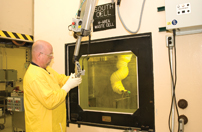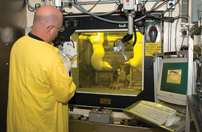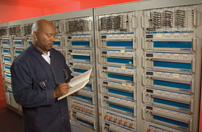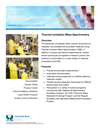 |
Thermal Ionization Mass Spectrometry
The distribution of isotopes within uranium and plutonium
materials, are precisely and accurately measured using Thermal Ionization Mass Spectrometers (TIMS). In
addition to isotopic abundance measurements, isotope
dilution techniques are applied to measure uranium and
plutonium concentration on a wide variety of materials
processed at the SRS. |
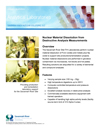 |
Nuclear Material Dissolution from Destructive Analysis Measurements
The Savannah River Site F/H Laboratories perform nuclear material dissolution of Pu/U oxides and metals plus Np oxide to support site productions/remediation projects. Nuclear material dissolutions are performed in glovebox containment via microwaves, hot blocks and hot plates. Resulting solutions are aliquotted for a variety of elemental and compound analyses. |
 |
Radiological Beryllium by Inductively Coupled Plasma-Emission Spectrometry (ICP-ES)
F/H Analytical Laboratories uses ICP-AES for use in elemental solution analysis. A nebulizer is used to produce a fine aerosol from the sample solution. A high temperature argon plasma is then used to atomize and excite the sample atoms. |
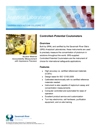 |
Controlled–Potential Coulometers
Built by SRNL and certified by the Savannah River Site’s (SRS) Analytical Laboratories, these instruments are used to precisely measure the concentration of plutonium in solutions throughout the world. SRS-supplied Controlled‑Potential Coulometers are the instrument of choice for international safeguards applications. |
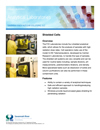 |
Shielded Cells
The F/H Laboratories include four shielded analytical cells, which allows for the analysis of samples with high radiation dose rates. Cell operators make use of the model G-HD Telemanipulators, developed by Central Research Laboratories, to handle this type of samples. |
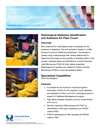 |
Radiological Asbestos Identification and Asbestos Air Fiber Count
Bulk material from radiological areas is analyzed for the
presence of asbestos. The bulk sample is heated in muffle
furnace to remove interfering substances. The sample is
viewed using a stereoscope with camera attachment to
determine the presence and quantity of asbestos fibers in the
sample. |

